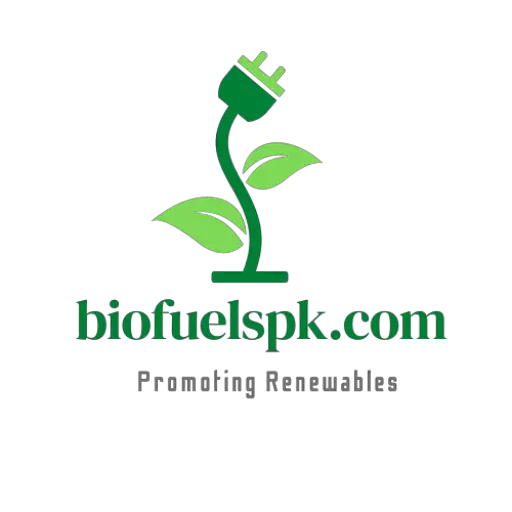Introduction
A few notable analysts have suggested that the evolution of biofuels to date has been energy-inefficient, less economical, environmentally harmful. In the context of biofuels vs food resources. Let’s see what relationship is between biofuels vs food resources. what would be the future of biofuel and how to mitigate these concerns of experts. To unleash Author use few tools based on AI in writing & developing a blog/Article on “Biofuels vs Food Resources. what is the Relationship”
what is Biofuel?
Unlike many other renewable energy sources, any type of biomass can be converted into liquid fuels, called “biofuels”. it used to meet transportation fuel needs. The two most common types of biofuels nowadays are ethanol and biodiesel. Both these are the first generation of biofuel technology.
Biofuels vs Food Resources Relationship
It founds that the biofuel industry has ignored the sustainability protocols. Also has produced considerable controversy over the issues like food resources, feedstock supply chain and environmental impacts. Let’s understand the relationship and few mitigation criteria for biofuel vs food resources.

Land usage Assessment
Biofuels can be substituted for fossil fuels. If their production on large scale is environmentally sound and feasible on both socio-economic and biophysical criteria. The postulates include fresh-water availability, air, polluted water, loss of biodiversity, biofuel refining process and human resources. The team of experts examined all above points in 21 countries. These countries are the major producer of ethanol and have both tropical and sub-tropical regions. All of the 21 countries had faced adequate land or excessive water to rely on the biofuels for energy usage. The experts highlighted the large environmental cost and major loss in food production in gathered data.
Mitigation
According to a few authors, the biofuel vs food competition could be overcome by focusing on biofuel production in less productive lands. A case study of United states revealed that a large scale biofuel industry by following less productive land protocol would be able to displace 20-30% of petroleum based transportation in 2030.
Sustainable Biofuels
There is a growing consensus that there are three foundational issues. While there is continuing and lively debate about what differentiates ecological economics from other fields:
- The optimal or sustainable scale of the economy,
- economic efficiency
- Equitable distribution of resources.
All of these issues, among others, are being addressed in the context of biofuels. Thus, this section will review the following dimensions for biofuels: optimal scale, efficiency, equitable distribution of biofuels. The recent studies found that large-scale production of biofuels would entail heavy demand for land, water, and labor. They found that the earlier assumptions for biofuels production yields, water use, and labor requirements were inefficient. In addition, they showed that the labor, water, and land requirements for production of cellulose-based electricity, methanol, and hydrogen would be much lower than traditional agricultural crops. These all postulates also relate to the concerns about the sustainability of biofuels in many contexts.
Mitigation
To enhance production and lower the overall impact main solution is to enhance the production capability of cellulosic-based crops. Another implementation is to start financing and run these projects by government and non-government organizations on lower land.
Distribution of Food resources
There are several dimensions in the distribution and use of biofuels vs food resources. First, what are the consequences if cellulosic biofuels are commercialized?. Secondly how the biofuel industries are distributed geographically. the last impact of biofuels industries on the existing crucial resources of feedstock. Currently, biofuel industries depend upon such as corn starch, sugar cane molasses, rapeseed oil, soyabean oil and palm oils. Two globally renowned countries United states and Brazil account for a significant contribution to global production. Corn and sugar cane consumed in these countries used to produce ethanol and as does India as well. These feedstocks are readily available in the entire world. After the passage of few years, a potential conflict will raised between fuel vs food and impact of food access prices of food for poor. Although it has been noted that biofuels don’t adversely affect the food chain as they can be produced on lower quality lands or less fertile lands.
Mitigation
Lets take the example of corn to understand mitigation criteria or suggestions. The increasing demand for corn-based ethanol has had an adverse impact on both export and domestic levels. Due to the resilience of demand elasticity in developing countries. The major factor is oil prices which influences the corn market and other feedstocks. The fluctuations in oil prices in the last few years shows detrimental effect on the food security for poor. So increase in oil and carbon prices have direct impact on food vs biofuels relationship. These points need exaggerated during the mitigation plans for biofuel industries.
Socio-economic resilience
Expansion of biofuels sector raises many challenges for rural economies Related to the issues of biofuels vs food security. Existing biofuels industries have been dependent on rural commodities and small farmers in several countries. As expanded biofuels development does not guarantee benefits to small scale producers, certification systems could help. Biofuels development does not guarantee to small scale producers. Liquid biofuels additionally such as biodiesel or vegetable oil may offer great opportunities for small-scale electric generation units at villages and community levels. A few major issues related with the generation of the biofuels at lager scales are economic development, small-scale financing health, employment generation. It’s very expected that small scale financing has difficulties for few regions and countries because the emergent nature of biofuel markets is at high risk in the context of engaging high capital requirements.
Mitigation
To overcome the cost and other barriers implementation is required on low-cost debt financing, integration into biorefinery and low cost residues of feedstock. Besides, such huge projects would seem to be funding from United Nations and other environmental facilities from all over the globe.
Conclusions(Biofuels vs Food Resources)
Now few results and conclusions, corn-based ethanol is unsustainable and has significant cost to environment. On other hand, sugar molasses based ethanol is less clear about its insignificant usage. Overall the problems can be addressed through better farming practices and awareness towards the farming of biofuel based crops. After this overall future development of biofuels seems bright in sustainable criteria as much as possible inconsistent way in the entire world.
For more detail and other information related biofuels & bioenergy visit
and also watch the free tutorials and videos for related content.
please subscribe & watch https://www.youtube.com/channel/UChkuduGTKxEHXa3Scnm9C9Q




